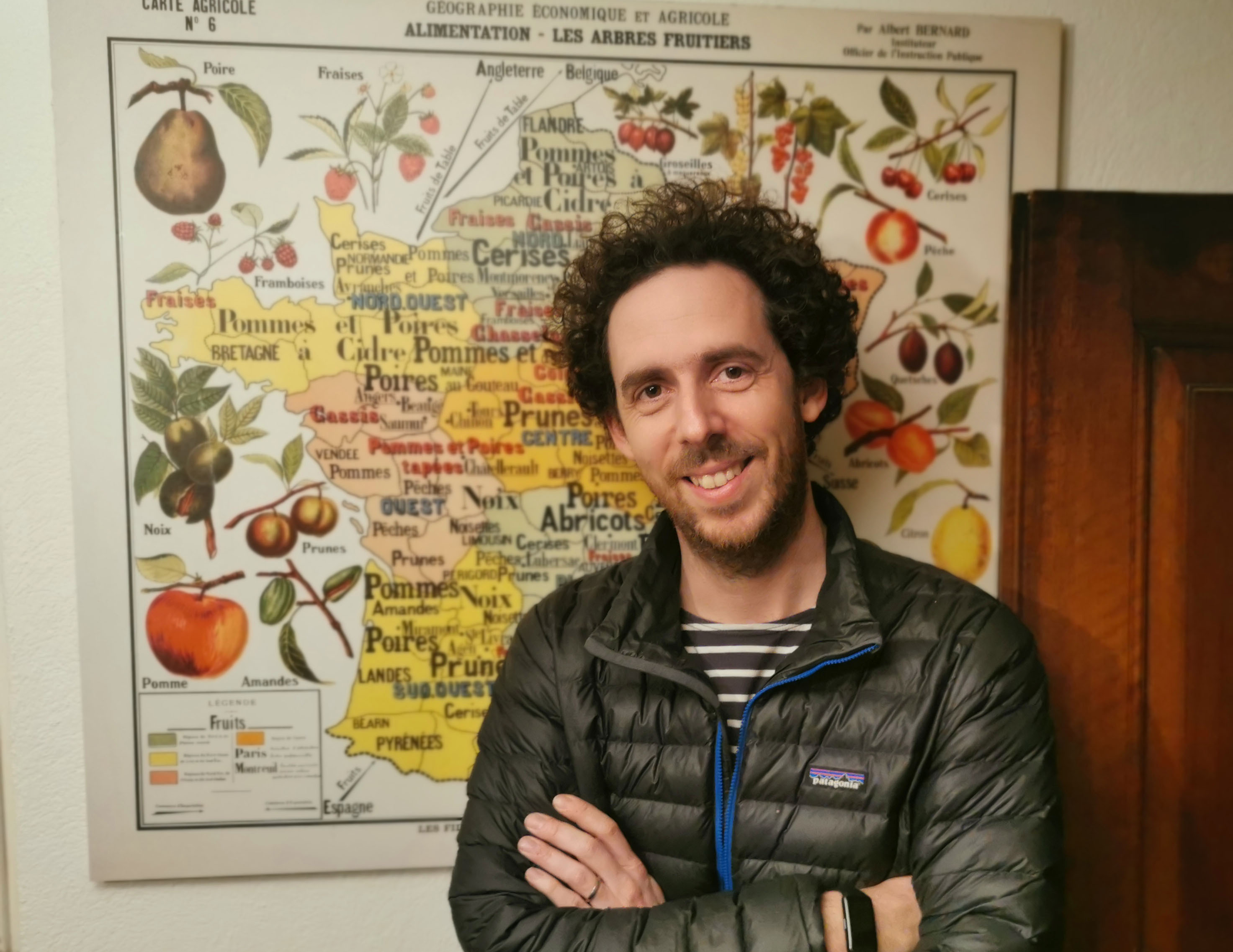Networking science.
A macroeconomist who’s not afraid of the field
Interview I Kalina Anguelova

After spending eight years at the University of St. Gallen, you’ve embarked on a new academic adventure as Professor of Macroeconomics at the Aix-Marseille School of Economics (F), since the beginning of 2024. Aren’t you happy in Switzerland any longer?
Of course, I am happy in Switzerland, as it’s my adopted home country. However, I’m 41 years old, and I wanted and needed to leave the status of assistant professor for a permanent position. Today, in Marseille, I can contribute to the curricula, engage with and supervise students. I like the idea of being able to develop teaching and the research culture as I see fit, for the good of an institution.
What is your current research focus?
My research focuses on long-term growth. In particular, my work focuses on low-income countries, and I study the socio-economic obstacles that slow down their economic development. For example, I’m trying to understand which economic policies promote the development of employment outside of the agricultural sector, particularly in urban areas. I am also studying the gender division of work. In particular, I study which labour standards are applicable to women’s work and the impact they have on women’s employment in those countries.
"I’m trying to understand which economic policies promote the development of employment outside of the agricultural sector, particularly in urban areas."
What is the main finding that emerges?
The main thrust of my research concerns labour productivity in the agricultural sector. For example, in Ethiopia, 70% of the inhabitants work in the agricultural sector, but they contribute only 20% of Gross Domestic Product, and the country imports foodstuffs. This means labour productivity in the agricultural sector there is very low. Why do people stay in the agricultural sector when labour productivity is so low there? Why isn’t there more migration from rural to urban areas? What kind of policy could facilitate the transition from employment to non-agricultural sectors? These are the topics I am studying.
Can you give an example of the type of policy that would contribute to a change?
Land policies. There is no private land ownership as we understand it in many sub-Saharan African countries. The only way to keep one’s land is to stay in one’s village. Land policy therefore compels people to work in the agricultural sector and to stay in rural areas, whereas they would probably be more productive elsewhere. For example, in one of my research papers, we show that a land reform would help to increase per capita income by about 10%.
Do you think we’ll be able to change the situation with research like yours?
Yes, gradually. As part of my postdoc at the University of Cambridge, I travelled to Ethiopia and Uganda to collect data. I spent a lot of time there trying to understand land-tenure institutions and the structure of land-ownership rights. I interviewed farmers, village chiefs and representatives of various institutions. With colleagues on the ground, we organized discussions with the advisor to the Ministry of Economic Affairs in Ethiopia to talk about land law in particular. I also work with the World Bank. The aim is for international organizations to use research such as mine as a basis for encouraging land reforms and facilitating labour development and productivity in the agricultural sector of the countries concerned.
"Having grown up in Madagascar, I suppose these impressions had a profound effect on me and aroused my curiosity about socio-economic inequalities."
Where did this love of macroeconomics come from?
Having grown up in Madagascar, I suppose these impressions had a profound effect on me and aroused my curiosity about socio-economic inequalities. This gave rise to a sensitivity to the fate of those who are less fortunate. So, when writing my thesis, I devoted a lot of time to learning statistical tools and techniques for studying inequalities. Armed with these tools, my aim is to complement the recent advances made in development economics. As a macroeconomist, I’m trying to understand how education policies and land-tenure policies that “work” locally can - or cannot – also work on a country-wide scale, and also in other countries. Thus, I have developed a research agenda in which we apply macroeconomic methods to the context of countries with low per-capita incomes in order to answer these questions.
At the age of 23, you worked as an investment banker for a year, then you did a stint at a think-tank in Brussels before returning to the academic world...
My experiences in the private sector encouraged me to persevere with my learning and showed me that I wanted to keep on learning. So, I went back to university, first to Florence to write my thesis. I went on to do a postdoc at Oxford. It was extremely inspiring. I was very impressed by meeting people who were at the cutting edge in their field, yet remained humble and very generous about sharing their knowledge.
Was Oxford the starting point for your current research?
Yes. That was when I began to develop my current research agenda.
A kind of trigger?
Yes, it was. I met a professor there who encouraged me and pushed me to conduct research in this field.
"Teaching is very gratifying and helps to keep you young."
Do you like teaching?
Teaching is very gratifying and helps to keep you young. One of the things I enjoy most is advising and placing students in different programmes. I am now seeing my first students becoming assistant professors or completing their theses.
What motivated you to join the SYA?
We found out about the existence of the SYA with my wife - who is also a member - somewhat by chance. We became involved in order to help to improve the representation of young researchers in Swiss universities. When we moved to Switzerland, we discovered the concept of “non-professorial teaching staff”, that is, non-tenured researchers and other research assistants. The interests of the latter, who account for a majority of the staff in university and higher-education circles, are largely under-represented compared with those of the professorial staff, even though they play an essential role in the functioning of the academic world. Through my involvement at the SYA, I have helped to give them a face and strengthen their representation in the Swiss Academies.
How, more specifically?
By encouraging the development of doctoral schools. Young researchers are dependent on the operating structure of the academic system. They are financially and intellectually tied to their supervisor, which can lead to cases of abuse. If the duo doesn’t work, it becomes difficult for the researcher to bounce back. The aim is to reduce this dependency by funding doctoral schools, for example.
A passion in life?
Football and gardening. I love to grow tomatoes in my garden in Zurich. It’s meditative, succulent... and also a leisure activity I took up as a result of my professional work...
Biography
1982, Born in Paris
2005, Diplôme d’Etudes Approfondies (DEA) in macroeconomics at the Sorbonne, Paris
2005-2006, Investment banker at CM-CIC, Paris
2005-2007, Research Fellow at the Centre for European Policy Studies, Brussels.
2007-2012, Thesis on the redistributive effects of monetary and fiscal policy, at the European University Institute, Florence
2012 to 2014, Postdoc at Nuffield College, University of Oxford
2014-2015, Postdoc at the Department of Economics, University of Cambridge
2015-2023, Assistant Professor of Economics, University of St. Gallen
Since 2024, Professor at Aix-Marseille School of Economics, University of Aix-Marseille
